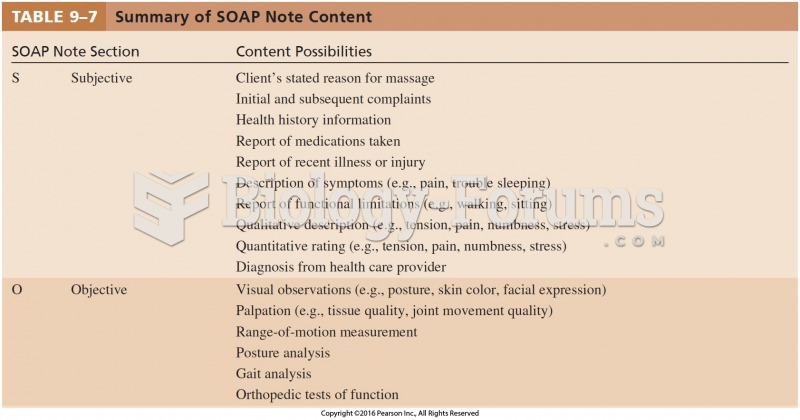|
|
|
Chronic marijuana use can damage the white blood cells and reduce the immune system's ability to respond to disease by as much as 40%. Without a strong immune system, the body is vulnerable to all kinds of degenerative and infectious diseases.
The calories found in one piece of cherry cheesecake could light a 60-watt light bulb for 1.5 hours.
Hip fractures are the most serious consequences of osteoporosis. The incidence of hip fractures increases with each decade among patients in their 60s to patients in their 90s for both women and men of all populations. Men and women older than 80 years of age show the highest incidence of hip fractures.
Most childhood vaccines are 90–99% effective in preventing disease. Side effects are rarely serious.
The average office desk has 400 times more bacteria on it than a toilet.
 The Kingsley plantation, on Fort George Island in Jacksonville, Florida. Zephaniah Kingsley, the own
The Kingsley plantation, on Fort George Island in Jacksonville, Florida. Zephaniah Kingsley, the own
 A typical evaporative emission control system. Note that when the computer turns on the canister ...
A typical evaporative emission control system. Note that when the computer turns on the canister ...





